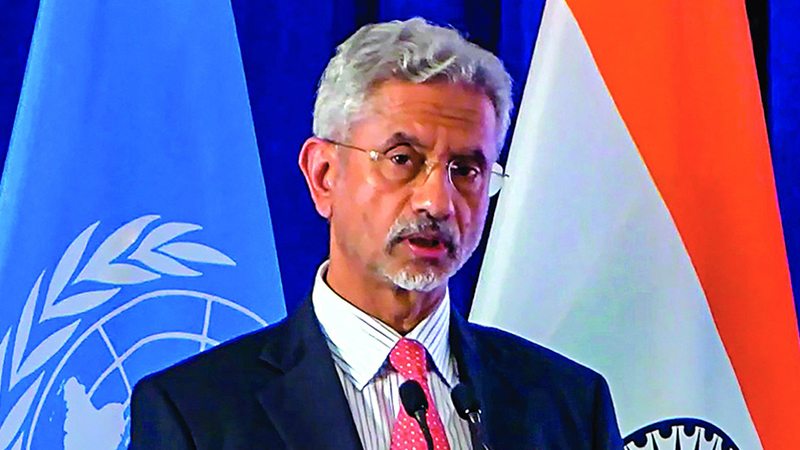India’s Foreign Minister S Jaishankar will be in Iran from January 14 to 15 even as the Houthi rebels are attacking vessels in the Red Sea. The Houthis are backed by Iran and the recent attacks on ships have made the world, including India, feel the pinch with even trade routes being affected. India and Iran share a strong relationship which has been nurtured by both sides over time. India, to its credit, has always maintained good ties with Iran, despite pressure from the United States.
Ever since the horrific attack by Hamas on October 7 last year, the Israel-Palestine situation has only become worse. Iran has been blamed by both Israel and the US as being behind Hamas and the attacks. No signs of resolution are in sight; on the contrary, there is now a fear that the crisis might escalate. As far as India is concerned this is a worrisome situation. A large Indian diaspora works and lives in many Middle Eastern nations. India also relies on the region for its energy needs. Also, India is helping develop the Chabahar port in Iran which could get derailed if the instability in the region continues.
Jaisankar’s visit to Iran at this time will be closely watched as it will be India’s endeavour to get some leeway from Iran when it comes to the passage and safety of its ships in the Red Sea. India has already deployed 10 ships in the Arabian Sea area as it steps up security to protect its commercial and strategic interests in the region.
Jaishankar’s Iran visit comes shortly after his conversation with Anthony Blinken, US Secretary of State, over the Iran-backed Houthi crisis. “Our conversation focused on maritime security challenges, especially the Red Sea region. Appreciated his insights on the ongoing situation in West Asia, including Gaza. Exchanged perspectives on developments pertaining to the Ukraine conflict,” Jaishankar said on his meeting with Blinken.
It is important to note that as far as Iran goes, India is unlikely to follow the US. There is too much at stake for India when it comes to its Iranian relationship and the most recent worry for India has been the entry of China in Middle East politics and its growing trade relations with Iran. Between 2020 and 2023, Iran’s oil shipments to China more than tripled despite US sanctions.
India has also opted not to join ‘Operation Prosperity Guardian’, a US-led maritime security initiative to address security concerns in the Red Sea and ensure freedom of navigation. The reason obviously is India’s reluctance to get involved in coalitions which are led by the West and have a greater Western agenda at heart.
In December last year, a drone attack hit the MV Chem Pluto oil tanker 200 nautical miles (370 kilometers) off the coast of India, which the US blamed Iran for. While Iran obviously rejected the US accusations, it’s interesting to note that India did not blame Iran.
What we see in India-Iran ties today is what is being referred to as India’s strategic autonomy, or in simpler terms, looking out for its own interests and not being part of alliances or coalitions that could hurt its own interests. Ukraine and India’s ties with Russia in this light is another example of this strategic autonomy.
In Iran, Jaishankar will hold talks with his Iranian counterpart Hossein Amir-Abdollahian. While India is uniquely positioned in this ongoing conflict as having excellent ties with all parties from Israel to Iran to UAE and Saudi Arabia, it will remain to be seen how far Iran takes on board India’s concerns. For Iran, this is, after all, the moment it had been waiting for. With Hamas, Houthis and Hezbollah all taking directions from Tehran, this is also time for Iran to assert itself regionally and globally.
Iran will lend its ears to India as it expresses its concerns over the Houthis attacks in the Red Sea and the escalating conflict in the region. But Iran, as it flexes its muscles in the region, is unlikely to commit any further, at least for the moment. – The writer is Executive Editor of Nrifocus.com


Leave a Reply